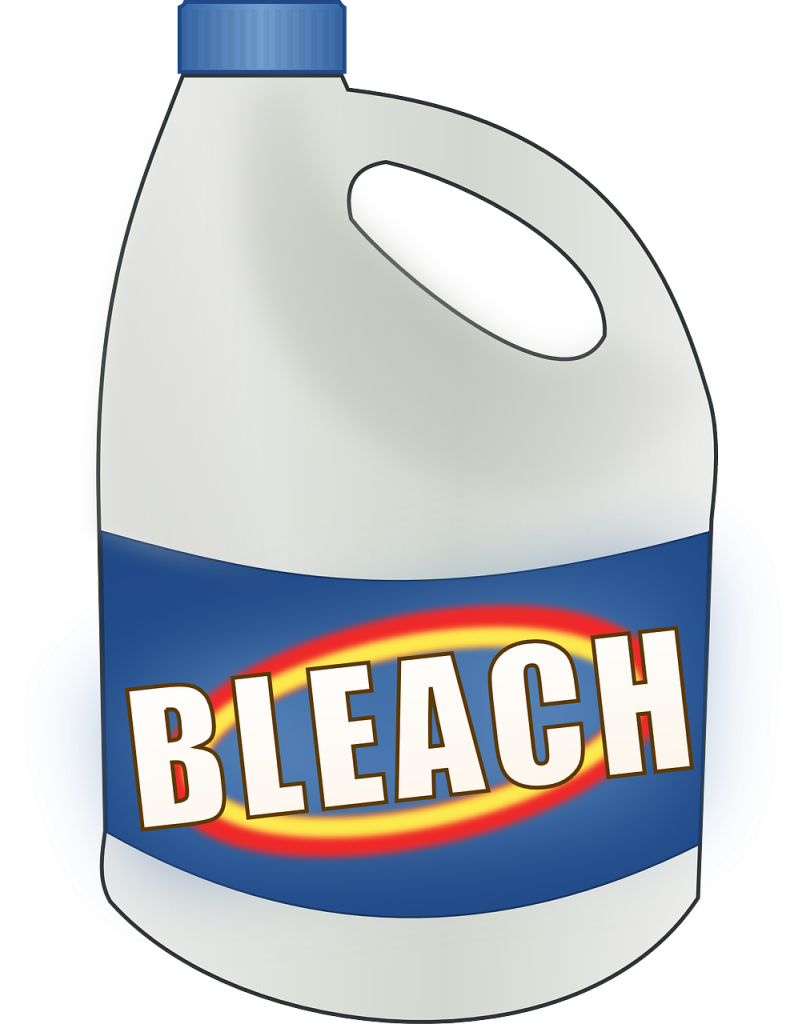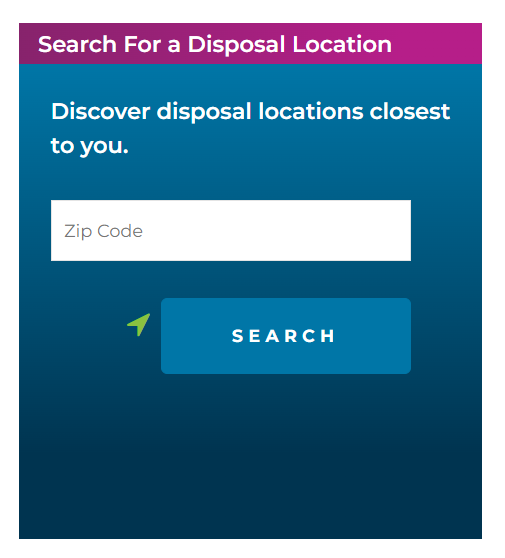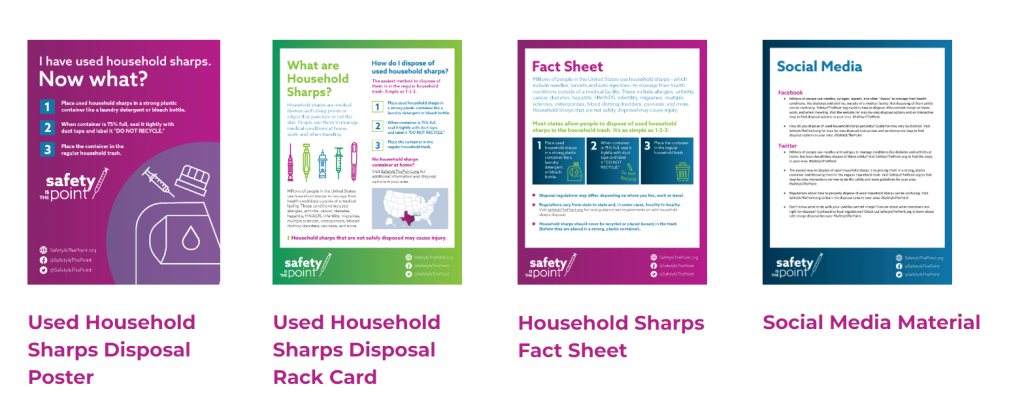
MR arrived at the clinic last week with a bag full of stuff. To be honest, my imagination conjured that they had a bag of fresh peaches or other fruits from their local farm to share with the staff. I laughed when they pulled out bleach and coffee containers filled with lancets and needles. When we first met they had been tossing their used sharps in the trash. After I explained that those sharps can harm the sanitation workers plus they can mess up recycling equipment, they were more than happy to start tossing used needles and syringes in used bleach bottles and coffee cans. MR is not alone, many people living with diabetes use sharps such as lancets or needles to manage their diabetes and disposing of used sharps safely is important for all of us.
We want to share this helpful website, SafetyIsThePoint.org that gives instructions for how to safely dispose of household-used sharps. This website has videos, cheatsheets, and a search function for drop-off locations available by zip code.
Household Sharps Management
On their Household Sharps Management page, they outlined the steps for how to safely dispose of sharps in their household trash, along with an instructional video.
Finding Local Disposal Locations

Across the U.S. people living with Diabetes can enter their zip code and find disposal centers in their regions.
Cheatsheets
They also provide handy posters and cheatsheets on best practices for household sharps disposal.

- Used Household Sharps Disposal Poster
- Used Household Sharps Disposal Rack Card
- Household Sharps Fact Sheet
- Social Media Material
Check out their website, SafetyIsThePoint.org to read more.
Join us for our upcoming FREE webinar
3 Steps to Save Feet; Assess, Screen, and Report
Airs live on August 10, 2023, at 11:30 am PST

Coach Beverly walks participants through the 3 Step Process to Save Feet; Assess, Screen and Report. She will provide simple and clear instructions on how to assess and inspect feet, along with risk assessment and action steps. We will share free teaching tools, strategies, and documentation forms adapted from the Lower Extremity Prevention Program (LEAP) that you can immediately implement in your practice setting.
Objectives:
- Describe steps involved in effective foot assessment made easy.
- Demonstrate how to use a monofilament to assess sensation.
- Discuss the use of screening forms to report findings
Two Ways to Register
Intended Audience: This course is designed for all health care providers and educators, who are interested in learning more about assessing and saving feet in people living with diabetes.
All hours earned count toward your CDCES Accreditation Information
Instructor: Beverly Thomassian RN, MPH, CDCES, has been Board Certified in Advanced Diabetes Management for over 20 years. She is an Associate Clinical Professor at UCSF, a working educator, and a nationally recognized diabetes expert. She has a Master’s Degree in Public Health from UCLA, with a focus on behavioral health and education.
All hours earned count toward your CDCES Accreditation Information
Sign up for Diabetes Blog Bytes – we post one daily Blog Byte from Monday to Friday. And of course, Tuesday is our Question of the Week. It’s Informative and FREE! Sign up below!
The use of DES products does not guarantee the successful passage of the CDCES exam. CBDCE does not endorse any preparatory or review materials for the CDCES exam, except for those published by CBDCE.









